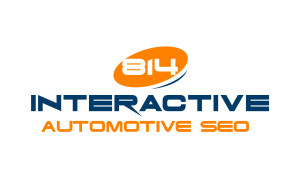When we talk about automotive SEO, you may see many people talking only about Google—and for good reason. Google is the most popular search engine.
While some operating systems may try to make you use other search engines, most people still choose Google when they are looking for a search engine.
It is so popular that it has become part of our lexicon.
Instead of saying that you are going to search online for something, you have at least once in your life said that you are going to Google something.
While Google is the biggest and arguably the best search engine available, making it probably the most important when it comes to search engine optimization (and it is important to note that most other search engines use a very similar algorithm and even pattern their algorithm changes after Google’s), it is far from the only big search engine and certainly not the only search engine that anyone uses.
And while it may only be my father that uses the search bar on MSN.com, there are millions of people that use Yahoo and Bing on a daily basis.
Here’s what you need to know about the other big search engines:
What the same?
There are, understandably, quite a few similarities between Google, Yahoo, and Bing.
The average person could probably run a search on all three and come up with generally the same search results.
But are there certain aspects of automotive SEO that are treated the same way?
Links are one of the area that all search engines put about the same amount of emphasis on.
If you have high quality back links, you are going to perform well on all three of these platforms.
Google especially puts a great deal of emphasis on the quality of your backlinks, but Bing has also started to give these a lot of weight.
Local search optimization is another area that all three engines treat in the same way.
This is especially important to dealerships, most of whom cater to a very specific part of a state or even just to a very specific part of a city.
All search engines are going to be looking for how well you optimize your content for local searchers.
If you want to perform as well on other search engines, as well as Google, it’s important to make sure that your content is specific to your geographic location.
Paid search is also the same between these three.
You pay for a slot, your link goes in that slot, the systems by which you bid on slots, choose keywords, and create ads are all about the same.
If you use one, you can probably easily jump to another.
Choosing to start a paid search campaign on Bing or Yahoo when you already have a campaign live on Google is a good way to reach out to potential customers who have defected from the search mogul and might be using another engine.
What’s different?
Aside from these three similarities, there are some important differences to note, especially if you are trying to optimize your website to rank well on more than one search engine.
Here’s what you should be aware of:
When it comes to exact match keywords, Google gives you a little bit more freedom.
Google looks not just at the keywords in your content, but the words around those keywords.
It is as concerned with context as it is with the keywords themselves.
When it comes to Bing, having an exact match keyword is more important than the context around that keyword.
Obviously, you will still want to make sure that your keywords and content are relevant to one another, but Google does provide you with more freedom when it comes to exact match keywords than other search engines do.
When it comes to keywords that have double meanings, Google will give preference to the website that is the most popular. On other search engines, the engine will give preference to local search results.
This is especially important to note for dealerships, as their automotive SEO should be very location specific.
If you have to use a keyword that has more than one meaning, how close your website is to the searcher could give you a better ranking.
The age of your domain and the authority you have built up over the year is important to Google, but not as important as your backlinks.
Google does play favorites. It prefers .edu and .gov domains, because they historically have better content, but you are not going to be slammed for not having one of these domains.
Bing, on the other hand, does put a great deal of emphasis on the age of your domain, in addition to favoring those higher quality domains.
If you have flash content on your website, Bing is going to be able to crawl it perfectly fine.
It may even give you a bump because you are using it. Google, on the other hand, despises Flash and will not even crawl a website that uses it.
This is probably the biggest difference between these two search engines.
If you use flash on your website, you’ll rank on Bing, but you won’t on Google.
Google is also the most mobile friendly of the three.
While Bing and Yahoo have started to work to make their engines more mobile friendly, Google is at the lead.
If you expect that the majority of your potential customers will be searching via a mobile device, optimizing for Google is likely going to be more important than optimizing for Bing or Yahoo.




